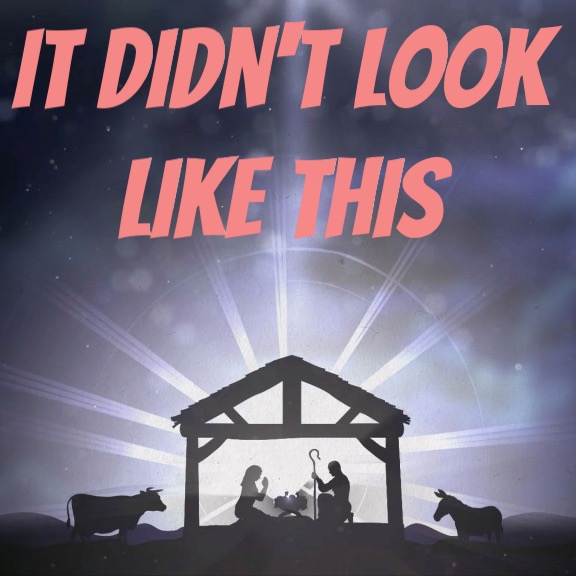Since the Christmas season is upon us, and I had the great pleasure of participating in my church's Live Nativity this past weekend, I thought I would blog some reflections on Luke 2.
Those of us who truly celebrate Christmas and its remembrance of the birth of Jesus are well familiar with the story. Mary, close to being full term, travels with Joseph her betrothed to Bethlehem, as there is a census that requires he return to his hometown. Upon arriving in Bethlehem, the InnKeeper breaks the news to them there is no open room, but they are offered a stable. Here is Luke 2:1–7 (LEB):
Now it happened that in those days a decree went out from Caesar Augustus to register all the empire. (This first registration took place when Quirinius was governor of Syria.) And everyone went to be registered, each one to his own town. So Joseph also went up from Galilee, from the town of Nazareth, to Judea, to the city of David which is called Bethlehem, because he was of the house and family line of David, to be registered together with Mary, who was legally promised in marriage to him and was pregnant. And it happened that while they were there, the time came for her to give birth. And she gave birth to her firstborn son, and wrapped him in strips of cloth and laid him in a manger, because there was no place for them in the inn.
Notice the unfortunate words of the InnKeeper — oh wait, there is no InnKeeper! It is a small point, but it a simple reminder that we often read back into the Bible what isn't there. I have heard New Testament scholars talk about the InnKeeper on televised specials! This character is so fixed into the Christmas story in our mind that we assume his presence. The InnKeeper is a great additional character for the Nativity plays in our churches each year, but let's make sure we understand what we are adding to the story.
Now what about the Inn itself? On this point I will need to do a little more explanation because almost every English translation uses the word "Inn" to [mis]translate the Greek word katalyma (κατάλυμα). Unfortunately, most of our English translations are doing us a disservice in continuing the translation of the KJV for this word as "Inn" – the NIV is an exception. When modern readers hear this word, we think of hotels. This is anachronistic and inaccurate. Let's hope that English translations going forward correct this mistake.
Our Greek word here occurs only 3 times in the NT, once here, and the other two are Mark 14:14 and Luke 22:11. In both of those instances, it is the "guest room," or simply "room," in which Jesus and his disciples will eat the Passover meal together. So katalyma is a room in a regular house — not a specially designated building. The study of this Greek word and its proper understanding in Luke has been best argued most recently by an NT scholar named Stephen Carlson. You can find the article here, or a summary of it here.
Two pictures below show what ancient houses would look like. This first picture is the same as that found in the wonderful book The Epic of Eden, which first introduced me to ancient housing styles.
Another image, somewhat different but still similar, is supplied by Logos Bible Software's infographics:
Part of the free Faithlife Study Bible infographics.
In both of these cases, the animals, including the feeding trough (commonly translated as "manger") which the baby Jesus was placed in is part of the house. Animals were not usually far separated from the living quarters. Having a barn far from the living quarters was susceptible to wild animals and thieves. Their livestock was some of their most prized and important possessions, so they kept them close.
What does this all mean? The traditional Nativity that plays out in the movies of our mind is almost certainly incorrect. In the popular retelling of the story, the heavily-pregnant or in labor Mary, on the back of a donkey being led by Joseph, comes to an Inn and desperately asks for a room. The InnKeeper tells them there are no available rooms, but knowing their desperation, he tells them there is a stable somewhere behind the Inn. Joseph hurriedly brings Mary to the stable, pushes some hay together, and with a stable full of animals, Mary, with just Joseph there to help her, gives birth to Jesus.
In reality, the picture that Luke paints is different. Joseph and Mary, coming close to term, traveled to Bethlehem. It is highly unlikely that they traveled alone, as traveling alone would be dangerous. Also, it may have been in their mind to go to Bethlehem at this time not just because of the census, but because they had some family support that could help Mary with the birth and to support her afterward. Mary and Joseph arrive at either a public house (an ancient type of hostel), or more likely to a family home of Joseph, either his father's or an extended family member's house. It does seem that Mary must have been in the throws of labor, as it was urgent enough that they had to choose the lower level of the home to give birth. There were some animals around, but there were also people close by in the same home, with other women very likely being there to assist, including those that likely traveled with them.
So in closing, I would suggest that this is a more accurate translation of Luke 2:7:
And she gave birth to her firstborn son, and wrapped him in strips of cloth and laid him in a feeding trough, because there was not enough space for them in the guest room.
Any questions? Leave them in the comments!



